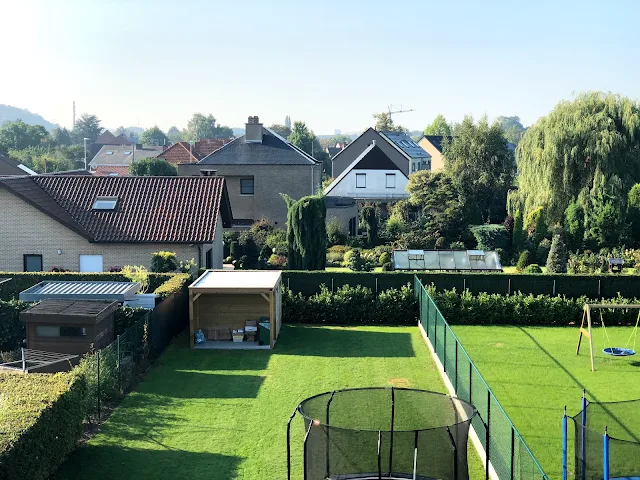Australian-Indian Romance Drama
 |
| imdb.com/title/tt31632538/ |
 |
| imdb.com/title/tt31632538/ |
 As curious minds, my sisters and I would not consider all her nonsensical practices gospel truths. Once, we were told that it was a time of lunar eclipse. Amma told us to finish dinner and go to sleep early. We should not be outdoors or engage in strenuous activities. Questioned why, she told us that the Goddess who had been holding the planet for so long had become tired. She wanted to take a breather, hence the temporary darkness. So, we should refrain from mocking the Goddess by doing work when she is exhausted.
As curious minds, my sisters and I would not consider all her nonsensical practices gospel truths. Once, we were told that it was a time of lunar eclipse. Amma told us to finish dinner and go to sleep early. We should not be outdoors or engage in strenuous activities. Questioned why, she told us that the Goddess who had been holding the planet for so long had become tired. She wanted to take a breather, hence the temporary darkness. So, we should refrain from mocking the Goddess by doing work when she is exhausted. 
 |
| Velayutham from Pudukkothai |
Upon arrival, he found himself having his passport confiscated, sent to be enslaved in a banana-leaf restaurant from 5am to 11pm every day. His wages were withheld, exposed to verbal abuses, be witness to the immolation of a fellow worker, beatings and sexual abuses of other workers. Eventually, he made a dash out, walk almost 300km to another state, begged to survive, did odd jobs and finally made it back home with the help of a Malaysian NGO. He finally decided to give a 'no holds barred' interview about his escape from terror with a private TV in Chennai.
Almost immediately after that interview, the Human Resources Minister, the enforcement agencies and the employers all sprang into action to determine what actually happened. Investigations are ongoing. The bottom line is that many corners have been cut in his employment. And the whole fiasco has given the nation a bad name.
The employers have come out to clear the air. They give a totally different account of what actually transpired, backed with supporting evidence. Many procedural shortcuts were done on compassionate grounds. They asserted that workers were supplied by an agent, and the employee had mishandled petty cash. They insist that any criminal act was amongst the workers and had nothing to do with them.
We, the viewers, are clearly left baffled, confused about what actually happened. Obviously, one side is bending the truth or simply lying.
No one believes in anything anymore. We are all desensitised with the violence. So what if the worker is torched? We have seen worse things done by housewives with children upon their helpless domestic help. And we have witnessed mafia-like employers torturing their workers. Let us not forget the shenanigans of some disgruntled employees expressing their resentment in murderous ways. Hence, anything may be possible.
In this post-truth world where emotions and pre-conceived notions about something prevail over objective truth, media and access to expression just make the situation murkier than it already is. Even the juries assigned to give an unbiased decision on the final say will find it an uphill battle. Information seeps through the tiniest crack. For Sama (Arabic: من أجل سما ‘min ajl sama‘)
For Sama (Arabic: من أجل سما ‘min ajl sama‘) |
| Aleppo: Before and After Bombing pics ©boredpanda.com |
 |
| Yes, I do my job but I am not your slave! |
 |
| You clear your mess! |
 It is quite comical that how verses from the same book of the Bible is used on either side of the divide in America on the issue of immigration. Quoting the book of Romans, one side claim that leaders are ordained by God. Hence, their decree is equivalent to God's command on Earth, and the people are dutybound to follow.
It is quite comical that how verses from the same book of the Bible is used on either side of the divide in America on the issue of immigration. Quoting the book of Romans, one side claim that leaders are ordained by God. Hence, their decree is equivalent to God's command on Earth, and the people are dutybound to follow. “Let every soul be subject to the governing authorities. For there is no authority except from God, and the authorities that exist are appointed by God” (Romans 13:1).
 |
| Credit: FB group: Rawthers
Penang circa mid-1960
|